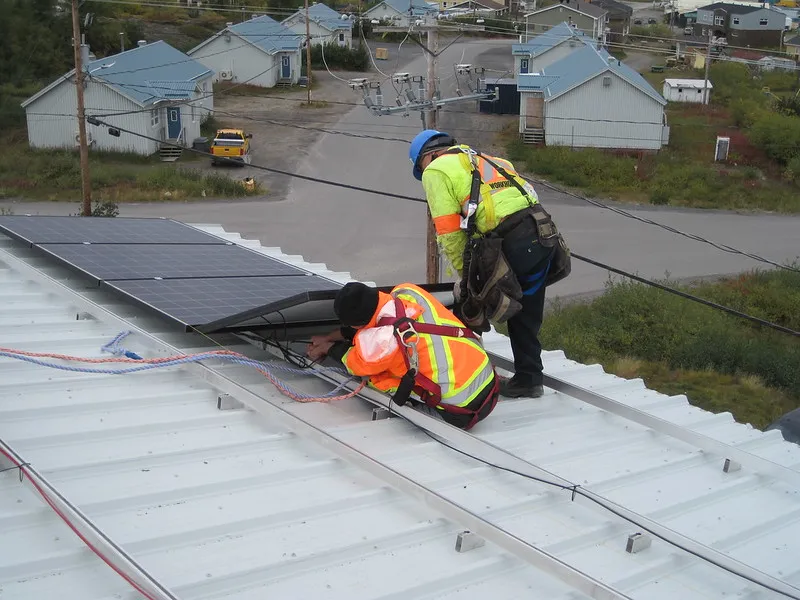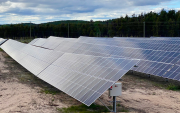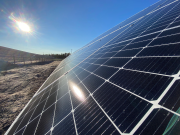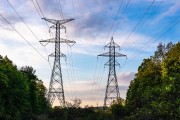Budget 2023 proposes a range of allocations that demonstrate a strong commitment to building a competitive clean energy economy throughout Canada. From clean technology manufacturing and adoption to carbon capture, utilization and storage and significant investment tax incentives, the federal commitment to building a reliable and clean future is clear.
As part of our Budget 2023 analysis, we’re turning our attention toward commitments made to remote Indigenous-led clean energy projects across Canada. Based on this review, we note that although Budget 2023 broadly showcases some positive investments for Indigenous clean energy projects, direct funding and program recapitalization for remote and community-led projects will create the necessary conditions for a faster and stronger transition in rural and remote communities. Below, we’ve outlined a few notable Budget 2023 items that will impact the transition off-diesel in rural and remote Indigenous communities.
Direct funding for community-led transition
Budget 2023 proposes to provide $3 billion over 13 years, starting in 2023-24, to Natural Resources Canada to recapitalize funding for the Smart Renewables and Electrification Pathways Program (SREPs) and renew the Smart Grid Program.
Remote Indigenous communities that are making the transition away from diesel and toward renewables face a unique set of financial barriers that limit their ability to develop, build, and operate their own clean energy projects and actively participate in the ongoing energy transition. Increased funding to programs like the Smart Renewables and Electrification Pathways Program and the Smart Grid Program can help lower financial barriers for Indigenous communities in energy transition, especially projects that are focused on heating and transportation electrification and implementing smart grid technologies into remote microgrids.
Budget allocations for SREP and the SGP complement previous commitments of $300 million to rural, remote and Indigenous communities in the Strengthened Climate Plan as well as the second Indigenous Off-Diesel Initiative program. Together, these commitments are positive steps in the right direction but represent only a fraction of the total funding, training, and action needed to accelerate technological, economic, and social change in remote and northern communities. For Canada to meet its stated goal of supporting remote Indigenous communities in their transition away from diesel by 2030, successive budgets will need to commit more funds to support communities in their respective clean energy projects.
The continued recapitalization of existing programs, and the delivery of more programs and initiatives which support capacity building remain critical. Without these efforts, the speed of the transition away from inefficient, expensive, and polluting energy systems will continue to lag.
Clean-energy loans
Budget 2023 announces that the Canada Infrastructure Bank (CIB) will provide loans to Indigenous communities to support them in purchasing equity stakes in infrastructure projects in which the Bank is also investing. These loans will be sourced from the Canada Infrastructure Bank’s existing funding envelope.
Loans offered through the CIB are designed to incentivize greater engagement and entry into the clean energy/infrastructure market. Though current investments are not exclusively allocated for Indigenous communities and energy entrepreneurs, Budget 2023 does explicitly commit to further supporting Indigenous businesses and communities under the CIB loan program.
Generally, funding is a welcome commitment and any effort to support Indigenous-led and -owned projects is critical to the success of new energy systems in remote and northern communities. It should be noted, however, that loans are likely to have the strongest impact on already established Indigenous businesses. At the community-level, a wider range of funding instruments and capacity-building programs are needed to support fast action in support of community-defined needs.
Additionally, it is not known how or whether this new commitment ties to the existing Indigenous Community Infrastructure Initiative, or how loans will be designed to mitigate the unique financial barriers that Indigenous business owners face.
Urban, Rural, and North Indigenous Housing
Budget 2023 proposes to commit an additional $4 billion, over seven years, starting in 2024-25, to implement a co-developed Urban, Rural, and Northern Indigenous Housing Strategy.
Budget 2023’s commitments to implement an Urban, Rural and Northern Indigenous Housing Strategy can play an important role in addressing chronic housing issues, however proposed funding falls well below recommended levels and doesn’t specify how or whether energy efficiency retrofits and fuel-switching funding and programs will be provided. Analysis conducted by the Assembly of First Nations, for example, recommends a federal investment of $63.3 billion through to 2040 to address chronic poor housing conditions in First Nation communities. While additional analyses authored by Indigenous Clean Energy suggest that the cost of upgrading and retrofitting homes in addition to advancing energy efficiency standards in Indigenous communities will amount to a total of 5.3 billion by 2030.
The bottom line is that much more funding is needed to address the housing and infrastructure gap in urban, rural, and northern Indigenous communities. Furthermore, if funding at the current pace continues, pervasive housing issues of mold, insufficient heating and ventilation, as well as overcrowding will persist.
Increased funding for low-carbon, healthy, resilient, and affordable housing infrastructure has the potential to both address pervasive housing challenges in remote and rural communities and further enable the clean energy transition. Without appropriate funding, both issues will only continue to build in complexity and cost.
Moving forward
Though this year’s federal budget represents a strong overall investment in Canada’s low-carbon economy, more funding for remote Indigenous-and community-led clean energy initiatives are required. Greater support for community-and Indigenous-led investment will remain critical to meeting broad net-zero commitments and fulfilling a range of reconciliatory responsibilities.
Future commitments for programs which support community capacity building; direct funding and program recapitalization; technology deployment in remote communities; electricity regulatory changes in support of energy autonomy; and financial policies to increase revenue streams from Indigenous-owned energy infrastructure will help address persistent and unique challenges faced by remote and rural Indigenous communities. Budget 2023 presents a tentative step forward in addressing these unique challenges, however more funding is necessary to truly accelerate progress.









